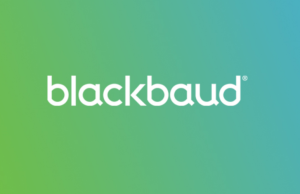Nonprofits have been closed out of receiving earmarks from a major source of federal funding following last week’s rules change to a community project grant program. The change was made by Rep. Tom Cole (R-OK4), chairman of the powerful House Appropriations Committee.
House lawmakers requesting earmarks from money allocated to the federal Department of Transportation and the Department of Housing and Urban Development’s (T-HUD) 2025 Economic Development Initiative will be restricted to doing so only for state, local and tribal governments and public colleges and universities. Lawmakers of both parties seeking earmarks for nonprofits in their districts turned to the T-HUD funding program this year after earmarks were banned from House funding proposals for the departments of Labor, Health and Human Services (HHS), and Education last year.
Cole, who had called for eliminating “political” earmarks, made the change after a number of his Republican colleagues objected to earmarks previously authorized for LGBTQ+ activist groups. In a letter to his colleagues, Cole said the changes would “ensure projects are consistent with the community development goals of the federal program.”
The ranking House Democrat on the committee doesn’t see it that way and has since released a statement of her own accusing Cole and the House Republican majority of upending the bipartisan appropriations process. “In order to accommodate the extreme Republican wing, Republicans are trying to root out any help for the LGBTQ+ community. They are willing to hurt their own religious organizations, seniors, and veterans,” wrote Rep. Rosa DeLauro (D-CT3).
The T-HUD and Labor-HHS-Education funding bills are two of a dozen funding bills written by congressional appropriators.
The changes won’t necessarily prevent lawmakers from requesting nonprofit earmarks through the other 10 House funding bills or from Senate funding bills. However, nonprofit leaders are concerned that doing so will become more difficult since T-HUD and Labor-HHS-Education have traditionally represented a significant source of federal dollars awarded to nonprofits. Most of the federal budget also comes from bills that originate in the House.
The changes have drawn the ire of Tim Delaney, president and CEO of the National Council of Nonprofits. In a statement, Delaney objected to what he called the “discriminatory exclusion of nonprofits” from future T-HUD earmarks.
“Under this new restriction, vital funding that members of Congress know their constituents need for domestic violence shelters, food banks in economically disadvantaged neighborhoods, youth and senior centers, affordable ready-to-build housing, and more that the public relies on nonprofits to deliver will be denied,” Delaney said. “Seeking to stop funding from going to a few groups that some representatives may disagree with by issuing a blanket ban against funding for all nonprofits will tear away needed funding from organizations that their constituents depend on.”
Organizations such as the YMCA and American Red Cross receive million of dollars via earmarks via district by district funding.
Delaney predicted the changes would hurt people seeking services, as well as those employed by nonprofits who could face being put out of work as a result. “We urge Chairman Cole and those on the Appropriations Committee to reverse course before causing this irreparable harm to communities across the country,” he said.











